When the U.S. decided to withdraw from Afghanistan after a 20-year war that it could not win from the beginning, many Western countries said it was a mistake. Even its closest ally, the United Kingdom, has criticised the American decision to leave Afghanistan as a “mistake” that has handed the Taliban “momentum”, not to mention a return of terror group al-Qaeda.
The UK defence secretary, Ben Wallace, said the withdrawal agreement negotiated in Doha, Qatar, by the Trump administration was a “rotten deal”. And he warned that the international community will “pay the consequences”, arguing that the failed country will once again become breeding grounds for terrorist organizations like the al-Qaeda. It will back to square one.
The European Union was so furious with the U.S. withdrawal, including Biden’s mishandling that led to the chaotic withdrawal, so much so that after a meeting of EU defence ministers, it says the moment had come to establish its own permanent military force. Some had even argued that the withdrawal would open new geopolitical space for China in the greater Middle East region.
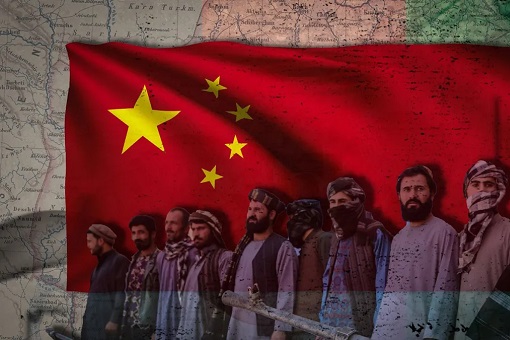
Of course, both China and Russia took the golden opportunity to mock and gloat about the defeat and failure of their main global rival. To save face over its useless never-ending-war in Afghanistan, Washington had already cooked up a good reason for the withdrawal – to shift focus and more resources to better compete with the emerging powerhouse China.
However, the U.S.’ half-baked message of quitting Afghanistan in order to deter the Chinese influence in Asia, especially in the South China Sea region, does not make sense. To say the U.S. must exit Afghanistan in order to contain China will only suggest that the Americans were incapable of fighting the Chinese while controlling a country that it had already been managing for the past 20 years.
In truth, despite trumpeting about America’s weakness and incompetence, China actually needed the U.S. to continue its stay in the war-torn country, keeping potential terrorists in check. The presence of America in Afghanistan was like a guard dog in China’s backyard, securing China’s border. The U.S. withdrawal, however, would transfer the problems to not only Beijing, but also Moscow.
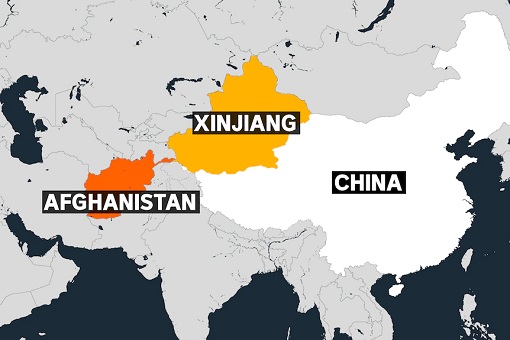
With the American troops in Afghanistan, Russia did not have to lose sleep about securing the borders of its central Asian allies. Now, Moscow, which launched a doomed invasion of Afghanistan in 1979, has to re-strategize in regards to the Taliban. China, which shares a 91-kilometre-long border with Afghanistan, is worried about “radical Islamic terrorism” spill over in Xinjiang.
The good news is that China has all the trump cards – it influences Pakistan, who in turn controls Taliban warlords, at least for now. While Beijing offered a high-profile public stage to the Taliban in July, where Foreign Minister Wang Yi met a delegation of nine visiting Taliban representatives, included its co-founder Mullah Abdul Ghani Baradar, it came with conditions.
Wang Yi has openly told the Taliban leaders, who were hungry for international diplomacy and recognition, that they must crack down on the East Turkestan Islamic Movement as it was a “direct threat to China’s national security“. Taliban spokesman Mohammed Naeem said the delegation has assured Beijing that they will not allow anyone to use Afghan soil against China.
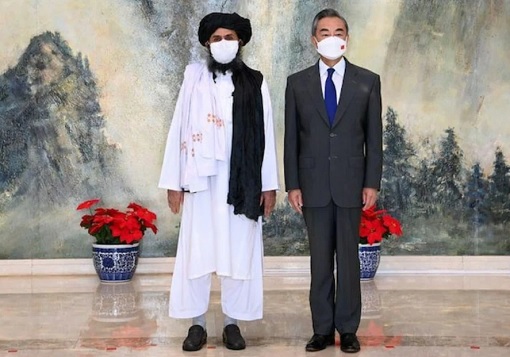
But even then, the Chinese government has only offered a “cautious recognition” after the Taliban unveiled a hardline government. In spite of the Taliban’s promises of an inclusive government and more moderate form of Islamic rule, it has appointed Mullah Mohammad Hassan Akhund, who is under United Nations sanctions, as acting prime minister.
Sirajuddin Haqqani (interior minister) and his uncle Khalil Haqqani (minister for refugees), two senior members of the Haqqani network, a US-designated terror group aligned with the Taliban and al-Qaeda, are part of the government. Khalil still has a US$5 million bounty for his past relationship with al-Qaeda. Four men receiving senior positions in government had previously been detained by the U.S. at Guantanamo Bay.
The Chinese is a pragmatic race. While they adopt a policy of non-interference in Afghanistan’s internal affairs, diving immediately into the country is not on the menu now, despite silly thoughts that Beijing will start its expansion of its Belt and Road Initiative in the country. So far, China has pledged US$31 million worth of aid, including food supplies and Covid-19 vaccines, but not cash.

After the U.S. burnt US$2.26 trillion (estimated interest cost by 2050 of US$6.5 trillion) in the 20-year war, you don’t need a rocket scientist to tell Beijing that it is a dumb move to replace America in that power vacuum. The fact that the Chinese has no plan to put boots on the ground, unlike the Americans, means China is very aware of security risks, unwilling to repeat the mistakes of Soviet Union and the U.S.
Sure, the war-torn country has trillions of dollars worth of untapped mineral resources. In fact, Afghanistan’s mineral wealth is mind-boggling. It sits above some 60 tons of copper reserves, more than 2.2 billion tons of iron ore, 1.6 billion barrels of crude oil, and 16 trillion cubic feet of natural gas with another 500 million barrels of natural gas liquids, as well as 1.4 million tons of rare earth minerals.
It was a simplistic view – even naive – to argue that the U.S. withdrawal will automatically benefit the Chinese in a huge way, as if China could instantly send its bulldozers, excavators, drillers, engineers and whatnot to start mining and extracting the minerals. China had actually tried to invest in the country even before the U.S. invasion, but it’s proven nearly impossible to reach the country’s resources.
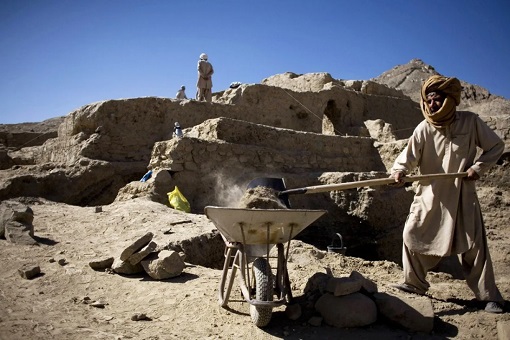
China still remembers how Taliban minister of mining was in a meeting with a Chinese delegation in Kabul when the September 11 attacks took place in 2001. After the U.S. invasion, a consortium of Chinese companies – Metallurgical Corporation of China and Jiangxi Copper – won a 30-year contract in 2007 to develop and exploit a copper mine in Mes Aynak.
In 2011, Chinese energy giant China National Petroleum Corp. won a tender for an oil field in Amu Darya (north of Afghanistan). Till today, no work has been started on the mining project in Mes Aynak, while the Afghan government had taken back the Amu Darya concession. If a fraction of the copper reserves could be extracted, about 10 million tons would be worth US$100 billion.
Before the minerals could be exploited, the country needs to build its infrastructure – railway, road, power station and refinery. To make matters worse, corruption is another issue that is plaguing the country. But with the country practically bankrupt, who will foot the bill to build the necessary infrastructure? Why didn’t the U.S. manipulate those mineral resources during their 20-year presence?
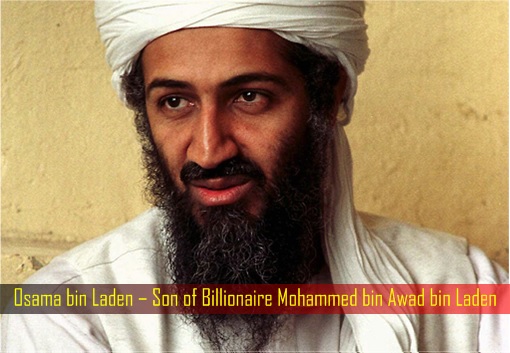
When China could not even trust the previous corrupt Afghan government, who did not honour business deals, why should they even trust a hardline Taliban regime which had harboured terrorist Osama bin Laden? Chinese companies may have a higher risk tolerance than some of their Western counterparts, but they are not dumb enough to throw money into a failed state.
Chinese construction companies that have built roads in Afghanistan had done it through international institutional financing after winning open tenders. Beijing will never take money out of its own pocket to build infrastructure, unless it’s a profitable deal. Just because it has given its cautious approval of the Taliban government, it does not mean it’s ready to do business with them.
Heck, even with Pakistan’s influence in Afghanistan, there’s no guarantee that the Taliban can be controlled. China has seen how Islamist group in Pakistan attacked Chinese infrastructure and interest. If Pakistan can’t even ensure the safety of China’s investment in its own country, what more in a country like Afghanistan?
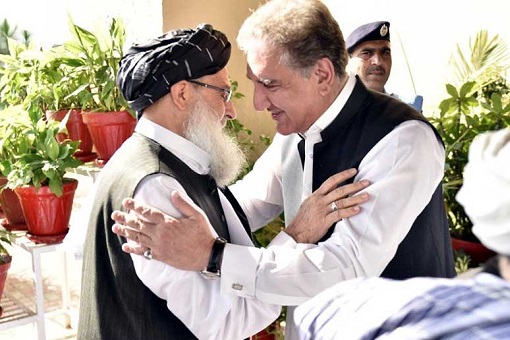
Even if the current Taliban government wanted political stability, Beijing recognizes the reality that Taliban is divided into many factions and tribes. There are as many as 14 ethnic groups in the country, with Pashtuns making up between 40% and 50% of the population. Tajiks account for about 25%, while Hazaras and Uzbeks are about 9% each.
From the beginning, Afghanistan is home to ethnic conflicts between the Pashtuns and non-Pashtuns. NATO and the U.S.’ failure to understand this is the reason why they had failed in their 20-year-old war. It’s a multi-century-old conflict, which started as early as the 1880s, when Pashtun religious leaders told their members that they would be rewarded by Allah if they butcher and slaughter the Hazaras.
Even as early as 50 years ago, Afghanistan has swung from coups to conflicts. In 1973, an Afghan general ousted the king and declared himself president. Five years later, Afghan communists assassinated him and seized power. The Soviet Union invaded the next year to prop up the unpopular communists, triggering a decade-long guerrilla war, which saw the U.S. pumped money to anti-Soviet Mujahideen fighters.
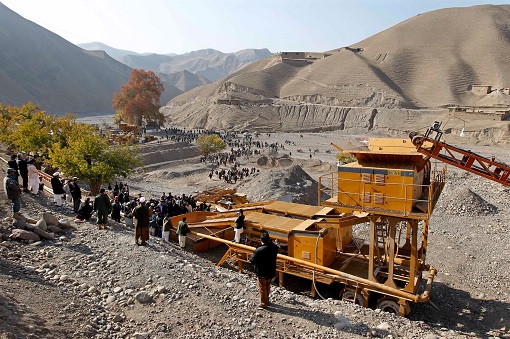
Therefore, China’s investments will most likely anger some local Afghans, one way or another. There will always be tribes who wanted to sabotage rival tribes across the country of nearly 40 million people, leading to Chinese interests and assets becoming collateral damage. There will still be problems even if Taliban tribes promise not to butcher each other.
Today, the Taliban remains sanctioned by the U.S., EU and United Nations. The hardline government unveiled has upset the Western countries, making it nearly impossible for the sanction to be reversed anytime soon. The sanction itself presents a legal problem and financial risk for any country, including China and Russia, to do business with the Taliban government.
It would be in China’s benefit not to rush, but to wait for Taliban’s desperation to kick in. The US$31 million aid, which included grains, winter supplies and medicines to Afghanistan, would be the first and small step to start the ball-rolling in reviving business ventures in the country. Beijing is banking on the Afghan fragile economy to pressure the Taliban to support its investment, which is badly needed.
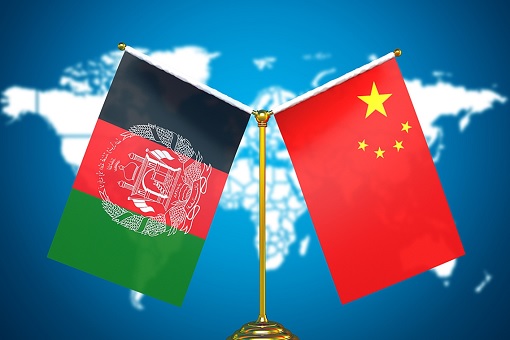
China’s immediate goal isn’t economic, but political. It has all the trump cards to become the most influencer player in the region. Its engagement in Afghanistan will show that the U.S. is not as reliable as China, who will not interfere in the internal affairs as long as they support Chinese interests. At the same time, it could use Taliban intelligence and resources to fight against extremism in Xinjiang.
Haji Adam, a tribal elder in Kandahar, said – “For 20 years the whole world came and money poured in, but how did it help us? If the water was in our control … if there was electricity, we would have products instead of war. If the roads were paved, there would not be so much destruction. Nothing significant has been built”. The region’s only large-scale hospital, he said, was built by the Chinese in the 1970s.
Other Articles That May Interest You …
- Afghan Women Distrust Taliban – Out Of 700 Women Journalists, Only 39 Are Still Working While Others “Disappear”
- US$2 Trillion Up In Smoke – U.S. Lost Another War In Afghanistan, And Left Behind Billions Worth Of Weapons & Equipments
- Russian Submarine Stalking UK’s £3 Billion Aircraft Carrier – Royal Navy Scrambles Helicopters To Search For Putin’s Sub
- President Xi Warns China Will Never Be Bullied – The U.S. Not Impressed China Is Building 120 Nuclear Missile Silos
- How This Image Of An Aussie Soldier With Knife On Afghan Child’s Throat Sparks New China-Australia Conflict
- Miss/Mrs Plus World Malaysia 2020 Pageant – PAS Talibans Should Focus On Economy & Investment, Not Women & Sex
- PAS Talibans At Work – Demolish Hindu Temple, Cut Water Supply To Penang & Even Disrespect Sultan Perak
- Balance Of Power – After S-400 Missile Defense System, Russia Offers To Sell Su-35 Fighter Jets To Turkey
- Terrorists Prefer Malaysia – A Breeding Ground For Terror Groups Due To Excessive Extremism
- A Chinese $2 Billion Investment Is Ready To Take Over An Israel Port – And The U.S. Is Unhappy
- Saudi Crown Prince A Monster? – Journalist Khashoggi Brutally Tortured, Killed & Cut Into Pieces

|
|
September 11th, 2021 by financetwitter
|


|

|

|

|

|

|











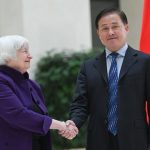
















Comments
Add your comment now.
Leave a Reply